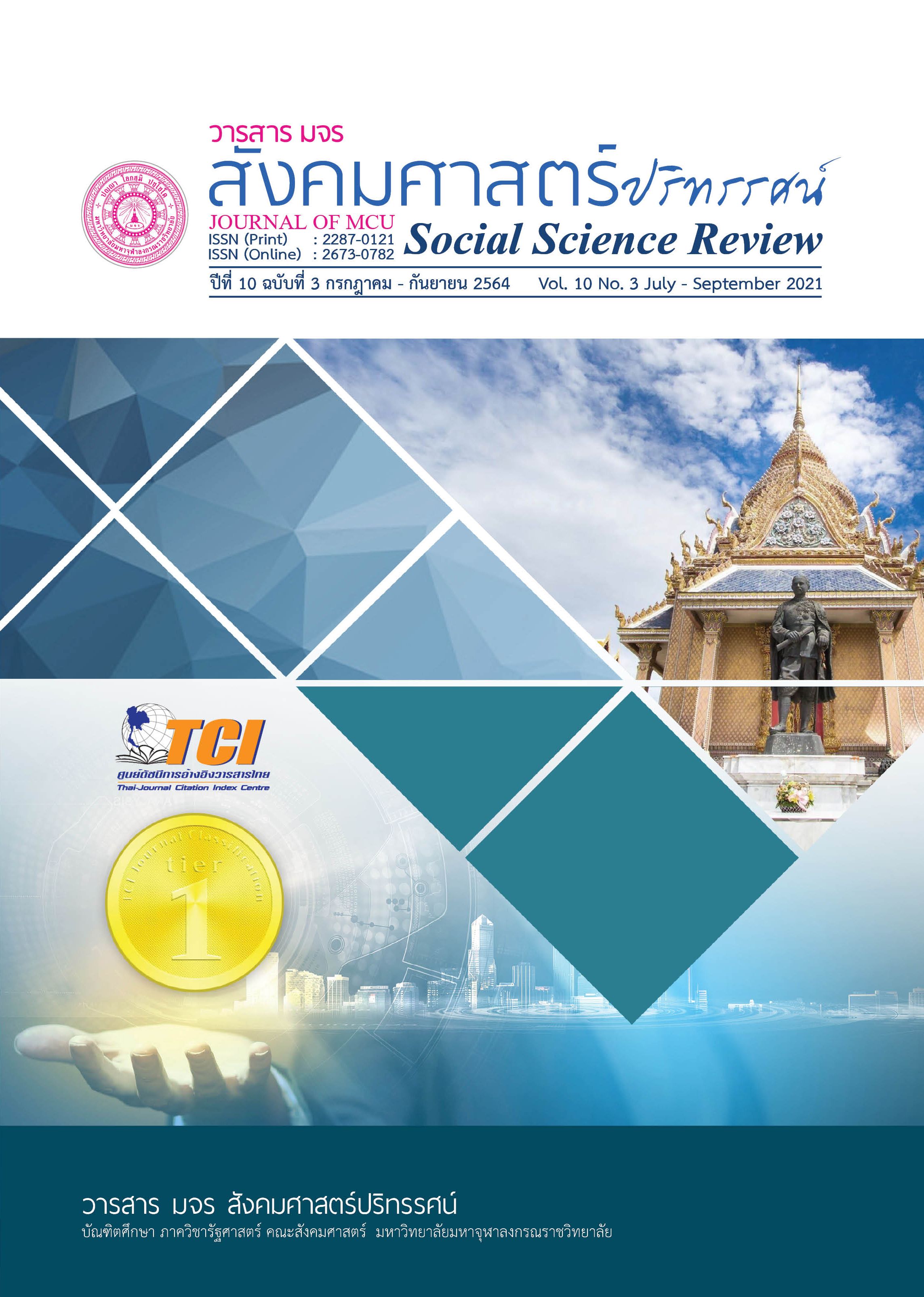OATH OF OFFICE TO THE KING BY CABINET UNDER THE CONSTITUTION
Keywords:
Oath of Office, King, Cabinet, Constitution of Kingdom of ThailandAbstract
Objectives of this research were: 1. To study evolution of concepts and principles in political science and law regarding to Oath of Office to the King by Cabinet Under the Constitution; 2. To study the problems of the compliance with the conditions of Cabinet’s Oath of Office; and 3. To study solution to mishap of Cabinet’s Oath of Office. The methodology was the qualitative research, collected data from relevant document and 17 key informants by in-depth-interviewing.
Findings of the research were as follows: 1. The Cabinet's oath to the King is a pre-requirement for the official inauguration of the Cabinet. If the Prime Minister or Minister has not taken oath of office, the status of prime minister or minister is not complete and cannot run the country. The Cabinet's oath of office to the King reflects the concepts and principles of sovereignty of people, the constitutionalism, the protection of the constitution, and traditional belief. 2. The problems of Cabinet’s Oath of Office were as follows: 1) shifting of government power, 2) taking oath of office before the King, 3) addressing incomplete words and 4) complying with the constitution. 3. The solutions to mishap of Cabinet’s Oath of Office were as follows: 1) Corrective action by the Cabinet; 2) the check and balance mechanism by the Parliament; 3) the review by the Constitutional Court; 4) the political participation of citizen; and 5) the Integrity rule (Ashwa principle).
References
เจษฎา พรไชยา. (2543). พระราชอำนาจของพระมหากษัตริย์ตามกฎหมายและธรรมเนียมปฏิบัติทางรัฐธรรมนูญ: ศึกษาเปรียบเทียบประเทศอังกฤษและประเทศไทย (วิทยานิพนธ์นิติศาสตรมหาบัณฑิต). กรุงเทพฯ: จุฬาลงกรณ์มหาวิทยาลัย.
ฐากูร ศิริยุทธ์วัฒนา. (2560). การประกันความมั่นคงแห่งรัฐธรรมนูญ. วารสารวิชาการวิจัยคณะนิติศาสตร์ มหาวิทยาลัยหัวเฉียวเฉลิมพระเกียรติ, 7(2), 23-35.
ธัญญ์พิชา โรจนะ. (2550). พระราชพิธีถือน้ำพระพิพัฒน์สัตยาในสังคมไทย จนถึง พ.ศ. 2575 (วิทยานิพนธ์ศิลปศาสตรมหาบัณฑิต สาขาประวัติศาสตร์). กรุงเทพฯ: มหาวิทยาลัยเกษตรศาสตร์.
บวรศักดิ์ อุวรรณโณ. (2538). กฎหมายมหาชน เล่ม 3 ที่มาและนิติวิธี. กรุงเทพฯ: สำนักพิมพ์นิติ ธรรม.
ปวริศร เลิศธรรมเทวี. (2561). การนำประเพณีในการปกครองระบอบประชาธิปไตยอันมีพระมหากษัตริย์ทรงเป็นประมุขมาใช้ในการพิจารณาวินิจฉัยคดีรัฐธรรมนูญ. (รายงานวิจัยฉบับสมบูรณ์). กรุงเทพฯ: สำนักงานศาลรัฐธรรมนูญ.
วิกานดา เกียรติมาโนชญ์. (2558). รูปแบบและหน้าที่ของการสาบานและสาปแช่งในวาทกรรมการเมืองไทย. (วิทยานิพนธ์ศิลปศาสตรมหาบัณฑิต สาขาภาษาศาสตร์เพื่อการสื่อสาร). กรุงเทพฯ: มหาวิทยาลัยธรรมศาสตร์.
วิษณุ เครืองาม. (2554). หลังม่านการเมือง. กรุงเทพฯ: สำนักพิมพ์มติชน.
สำนักงานเลขาธิการสภาผู้แทนราษฎร. (2562). ความมุ่งหมายและคำอธิบายประกอบราย มาตราของรัฐธรรมนูญแห่งราชอาณาจักรไทย พุทธศักราช 2560. กรุงเทพฯ: สำนักงานเลขาธิการสภาผู้แทนราษฎร.
สำนักงานศาลรัฐธรรมนูญ. (2562). ข่าวสำนักงานศาลรัฐธรรมนูญที่ 20/2562 วันพุธที่ 11 กันยายน พ.ศ. 2562. สืบค้น 2 กุมภาพันธ์ 2563, จาก https://www.isranews.org/isranews-news/80348-isranews-80348.html
สุชาดา เรืองแสงทองกุล. (2560) การกระทำทางรัฐบาล และปัญหาการตรวจสอบการกระทำ ทางรัฐบาล. (ดุษฎีนิพนธ์นิติศาสตรดุษฎีบัณฑิต). กรุงเทพฯ: สถาบันบัณฑิตพัฒนบริหารศาสตร์.
Toobin, J. (2013). The Oath: The Obama White House and The Supreme Court. New York: Doubleday.
Downloads
Published
How to Cite
Issue
Section
License
Copyright (c) 2021 Journal of MCU Social Science Review

This work is licensed under a Creative Commons Attribution-NonCommercial-NoDerivatives 4.0 International License.
In order to conform the copyright law, all article authors must sign the consignment agreement to transfer the copyright to the Journal including the finally revised original articles. Besides, the article authors must declare that the articles will be printed in only the Journal of MCU Journal of Social Sciences. If there are pictures, tables or contents that were printed before, the article authors must receive permission from the authors in writing and show the evidence to the editor before the article is printed. If it does not conform to the set criteria, the editor will remove the article from the Journal without any exceptions.





